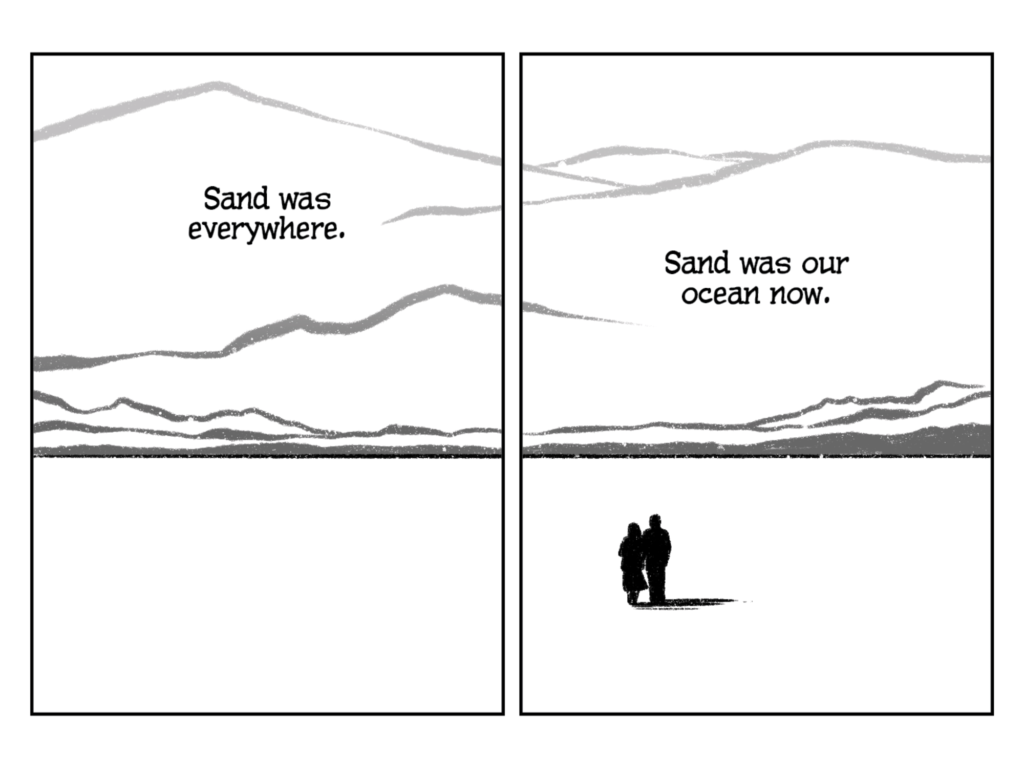June 22, 2022
We’re excited to share a new graphic novel by 2021 Densho artist-in-residence Molly Murakami! Tide Goes Out takes an intimate look at the lesser-known history of Terminal Island, a Japanese fishing village in the Port of Los Angeles whose residents were the first to be evicted from their homes less than a week after Executive Order 9066.
Molly (she/her) is a cartoonist and storyteller from Minneapolis, Minnesota, whose work focuses on family, history, and identity. Her first self-published graphic novel, In Your Path, explores intergenerational trauma amidst her relationship to her late grandfather Yoshiteru, a Manzanar survivor, and much of her short works are similarly autobiographical in nature. Tide Goes Out delves into the world of Molly’s great-grandparents, Motoyoshi “Frank” and Tsui Murakami, who ran a produce market on Terminal Island until their lives were disrupted by World War II.
For nearly forty years, Terminal Island was home to a robust fishing community, comprised of thousands of Issei fathers, mothers, and their American-born children. On February 19th, 1942, the people of Fish Harbor were given 48 hours’ notice to leave their homes: a foreboding preview of their subsequent removal to the prison camps they would call home for the duration of the United States’ involvement in the Second World War. Within days of their departure, the United States government razed Terminal Island to the ground, the history and memories of the Japanese Americans that had built their lives on the island bulldozed along with it.
Part-biography, part-fiction, Tide Goes Out recounts one family’s journey from their early years on the shores of Terminal Island, through their removal and detention in Manzanar, and their eventual return to the place they once called home. It’s a powerful exploration of historical memory and erasure, and how the stories of our past linger still and guide us towards the future.
Molly writes in an afterword describing how the book came to be:
“My hope for Tide Goes Out is that readers leave with an understanding that so much American history — not only Japanese American history — has been intentionally lost, razed to the ground and rarely addressed again. Omission of our Black, brown, Indigenous, queer, and disabled histories is an incredible disservice to the American people. If our leadership won’t remember, then we must, as we fight for a world where ‘Never Again’ is a guarantee, not a petition.”
Take a peek at an excerpt from Tide Goes Out below, then go read the full graphic novel online. We’ve also crafted some learning activities to help you bring Tide Goes Out to your classroom or community group. Dig in here, and learn more about Molly’s work at mollymurakami.com.





